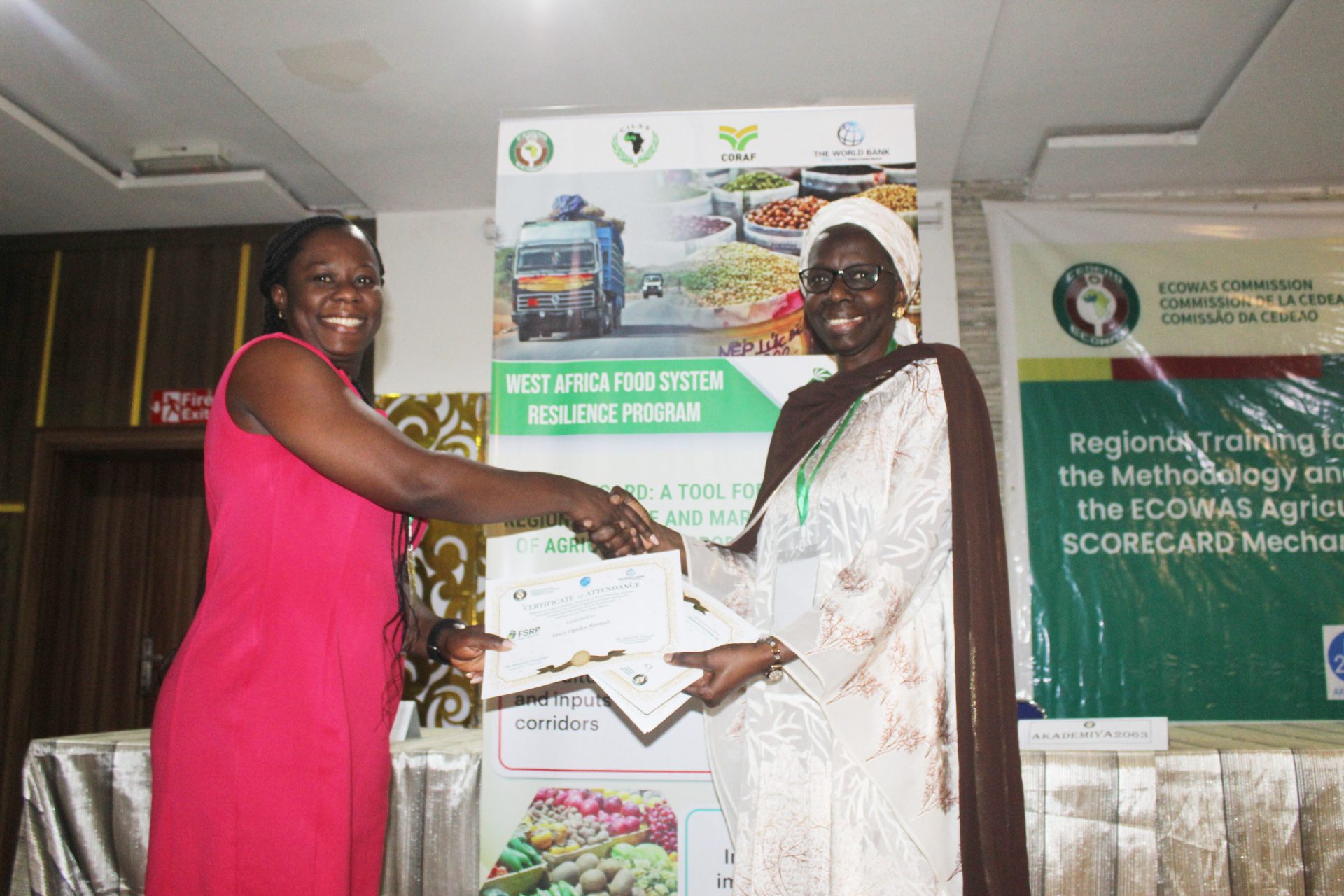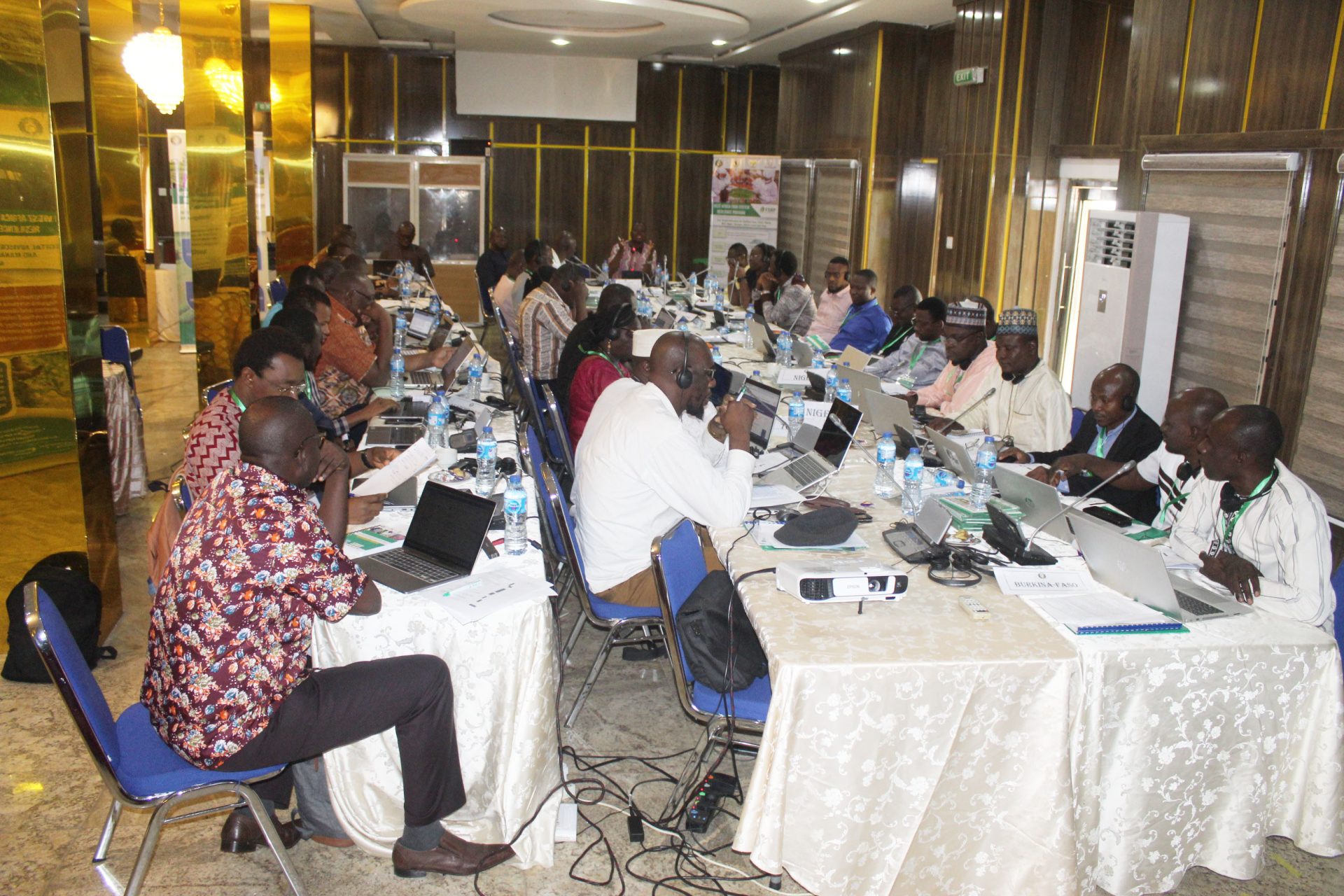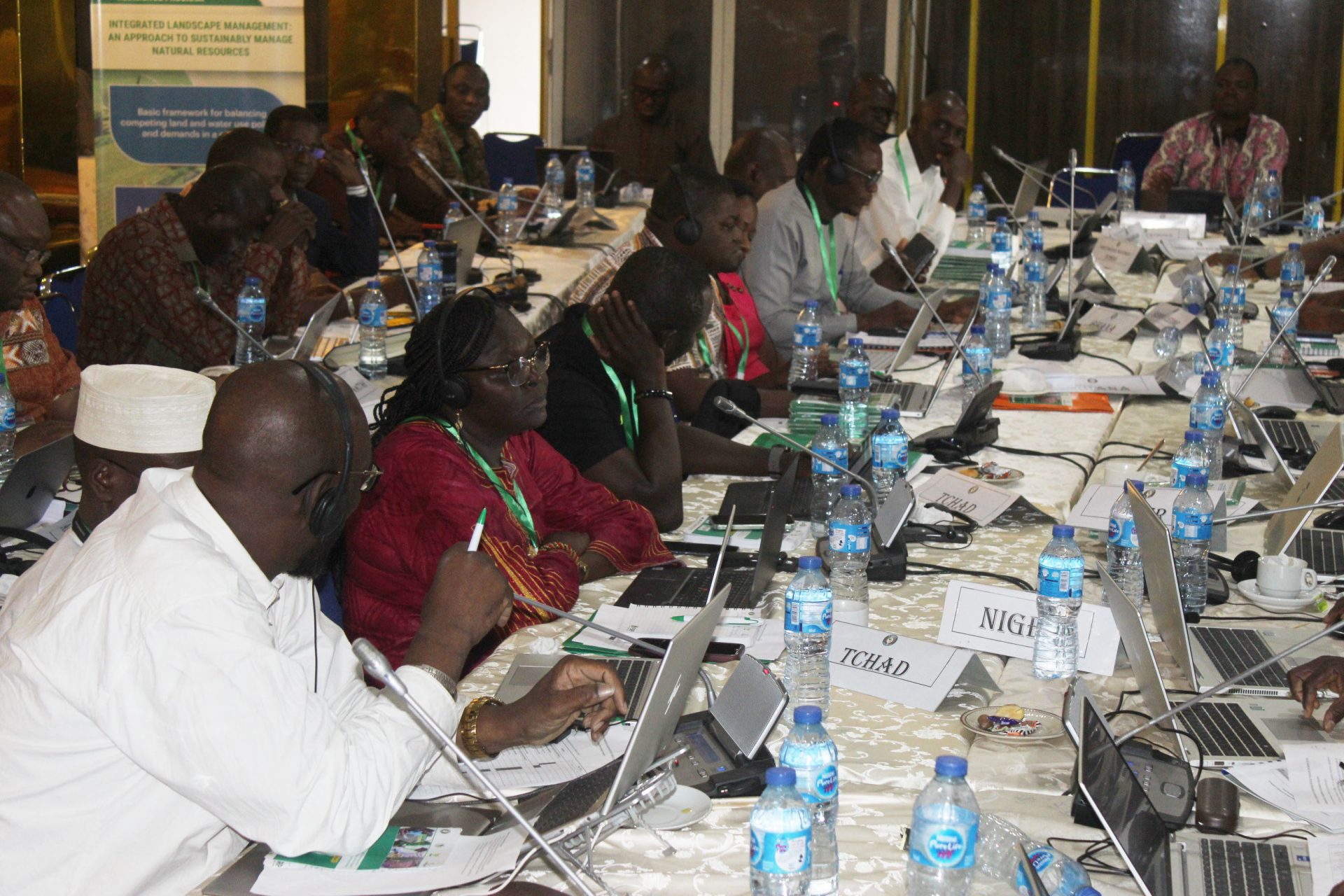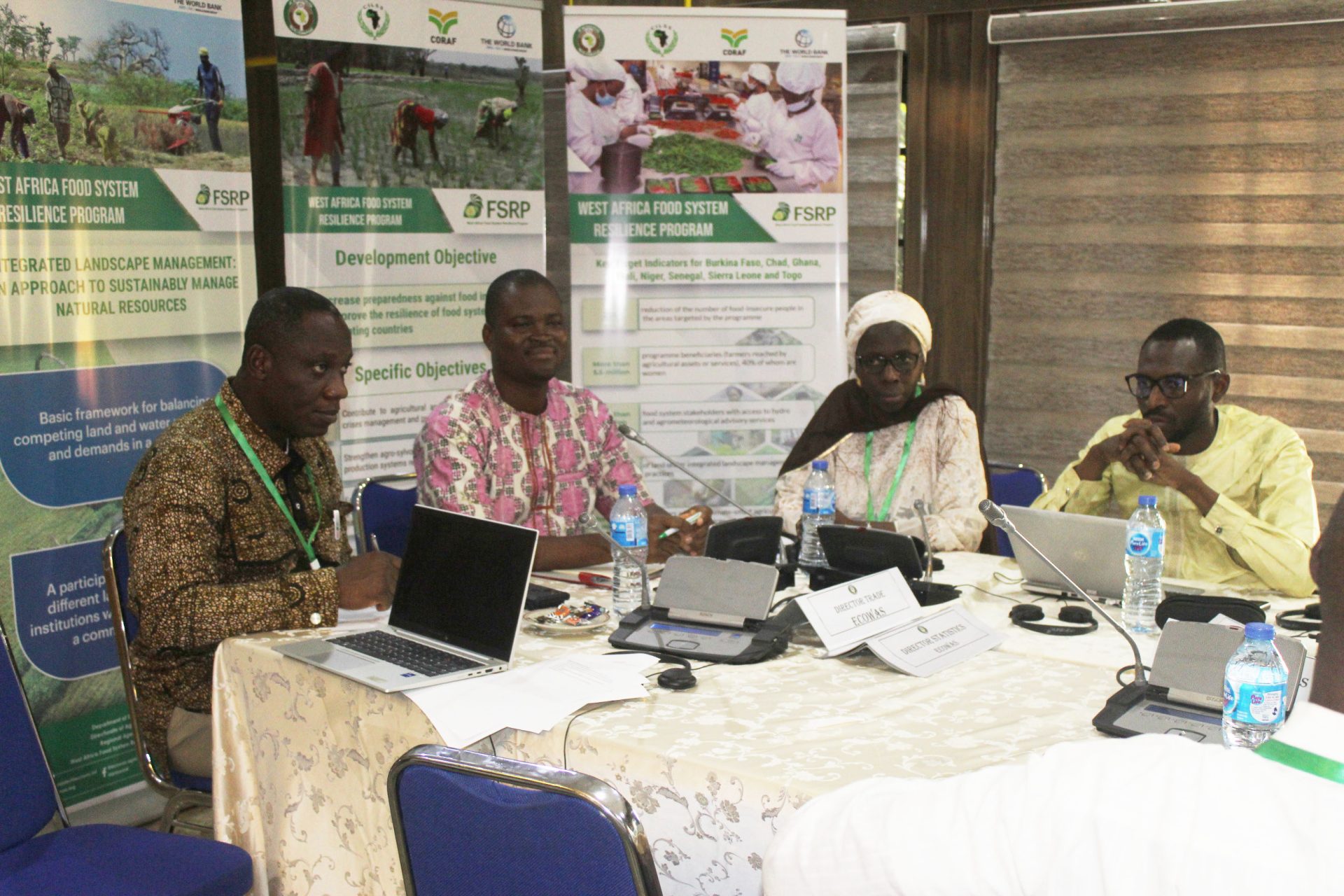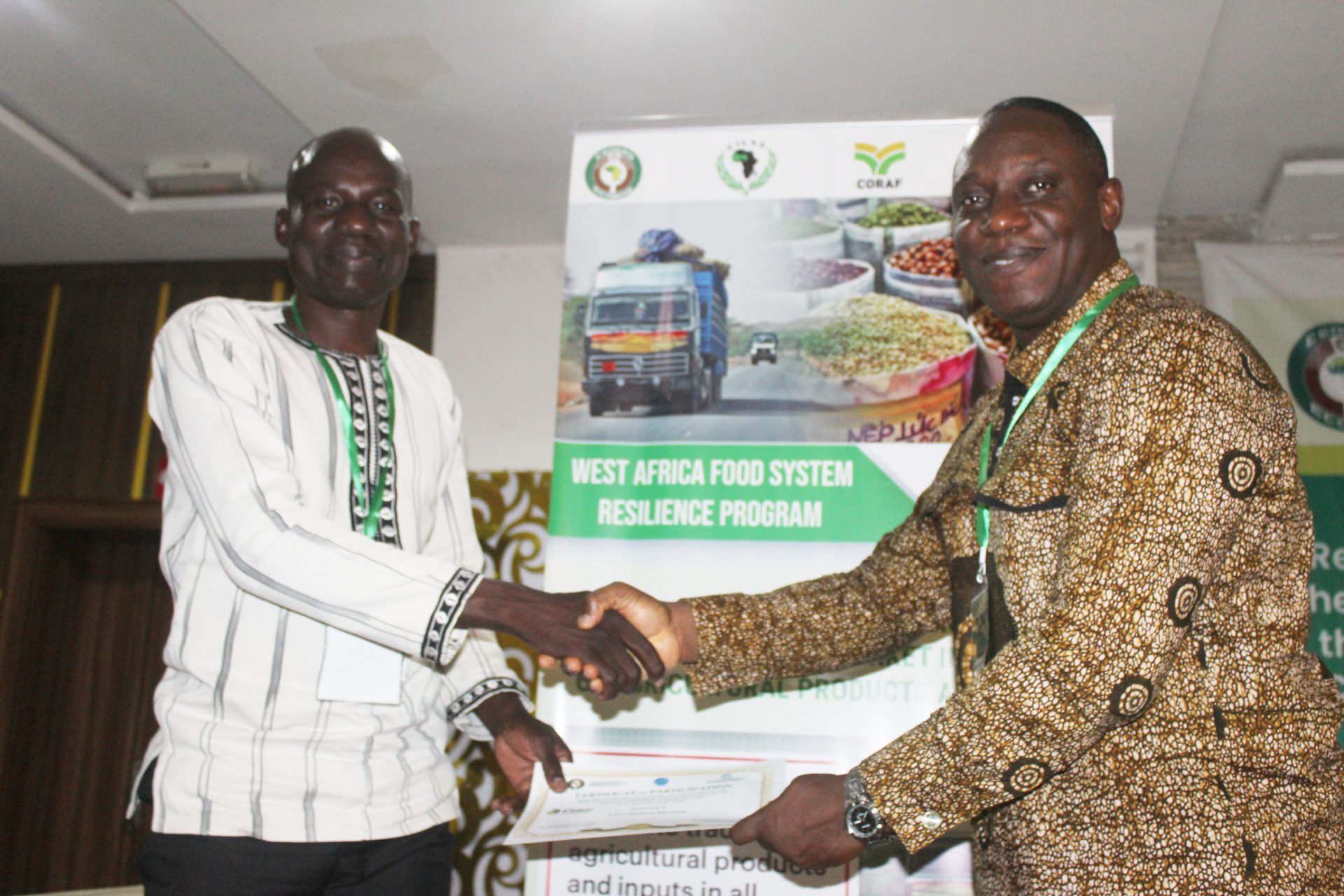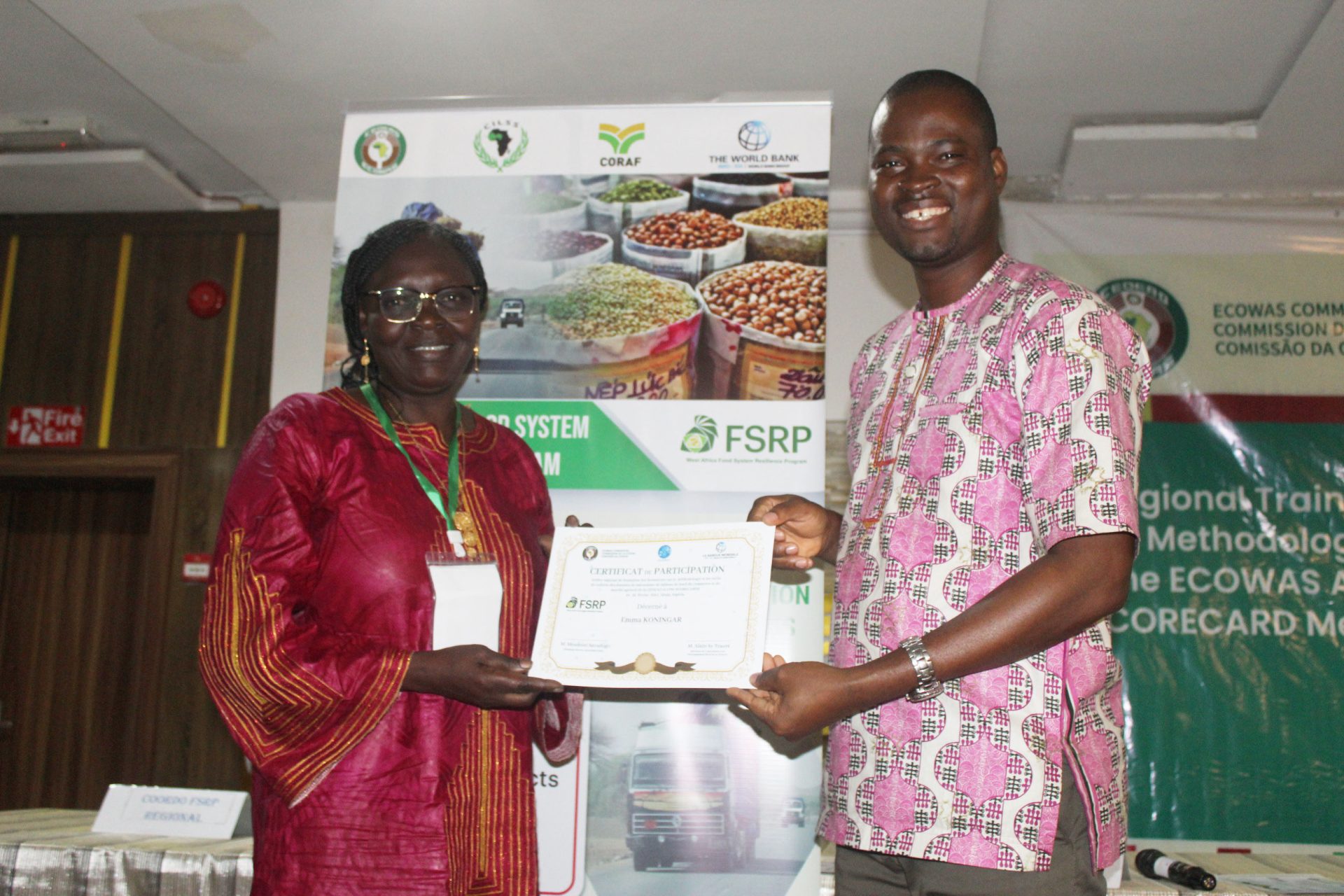Strengthening intra-regional trade in West Africa: ECOWAS trained 23 stakeholders in data collection and handling
23 Feb, 2024February 22, 2024, Abuja, Nigeria. 23 stakeholders and partners specialized in agricultural trade and markets in West Africa and Chad now have a better understanding of the ECOWAS Agricultural Trade and Market SCORECARD (EATM-SCORECARD).
The participants, from Burkina Faso, Ghana, Mali, Niger, Sierra Leone, Chad and Togo, and partner Organizations CILSS and WACTAF (West African Association for Cross-Border Trade in Agro-forestry-pastoral and Fisheries Products) reviewed the EATM-SCORECARD, from 19 to 22 February 2024 in Abuja, the methodology of the ECOWAS Agricultural Trade and Markets SCORECARD, the data collection process, the type of data to be collected, the data collection and handling platform and the reporting format. They in turn have the onerous task of training other players in the field in their countries to facilitate the collection and handling.
As part of the implementation of the West Africa Food System Resilience Program (FSRP), “the integration of regional food markets and trade” is a major thrust aimed at facilitating trade of agricultural goods and inputs within and across national borders in West Africa. To achieve this, ECOWAS has developed an analytical tool known as the Agricultural Trade and Market SCORECARD (EATM-SCORECARD). This tool aims to better document intra-regional trade of agri-food products, identify gaps in agri-food trade policies and strengthen the implementation of regional policies by countries (SLEC, ECOWAP/CAADP, ZLECAf, TEC, etc.).
With the active participation of members of the Regional TaskForce from the ECOWAS Directorates of Trade, Agriculture, Customs, Industry and Free Movement, the meeting, which combined theoretical and practical aspects, enabled the AKADEMIYA2063 trainers to gather additional needs from the countries to be considered to finalize the platform and thus facilitate its use by stakeholders at all levels.
The results generated by the SCORECARD should be used by decision-makers to influence policy reforms for the promotion of intra-regional trade and strengthen policy implementation as underlined by the Director of Trade of the ECOWAS Commission, Dr Kolawole SOFOLA “It is crucial that we recognize the importance of data in policy formulation and decision-making. Accurate and timely data can help governments design appropriate agricultural policies, anticipate food crises, support small-scale farmers, especially women and young people, and promote regional and international trade”.
The Abuja meeting is an important phase in the deployment of the SCORECARD in the countries, with the knowledge acquired being put into practice. National and regional players have agreed on a timetable to formalize the formation of country teams, to move on to data collection and handling, and to produce country scores before the start of the last quarter of 2024.
The country scores will provide ECOWAS with a map of the trade of agricultural products in the sub-region so that it can make the necessary corrections and help governments to design appropriate agricultural policies, anticipate food crises, support small-scale farmers, especially women and young people, and promote sub-regional trade.




